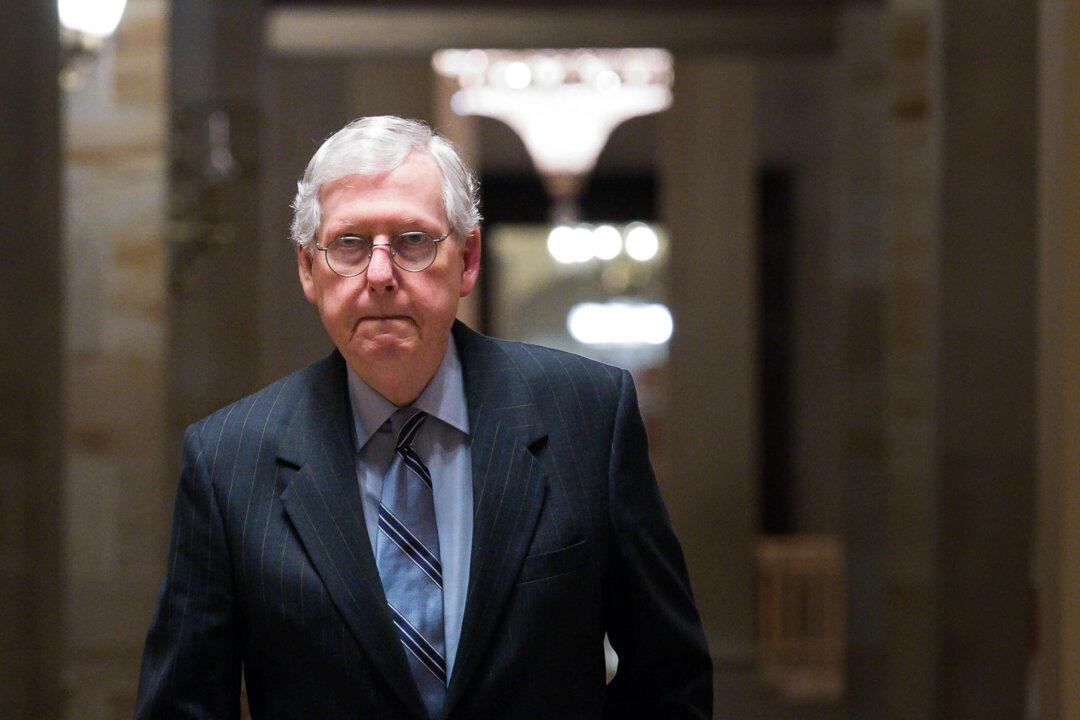Senate Minority Leader Mitch McConnell (R-Ky.) on Monday suggested that Senate Republicans aren’t anxious to consider Sen. Lindsey Graham’s 15-week national abortion ban even if the party takes the majority next year.
The bill, unveiled by Graham earlier the same day and dubbed the Protecting Pain-Capable Unborn Children from Late-Term Abortions Act, would impose criminal penalties on physicians who carry out an abortion after the 15-week mark, when research suggests the unborn infant can feel pain and distress.





